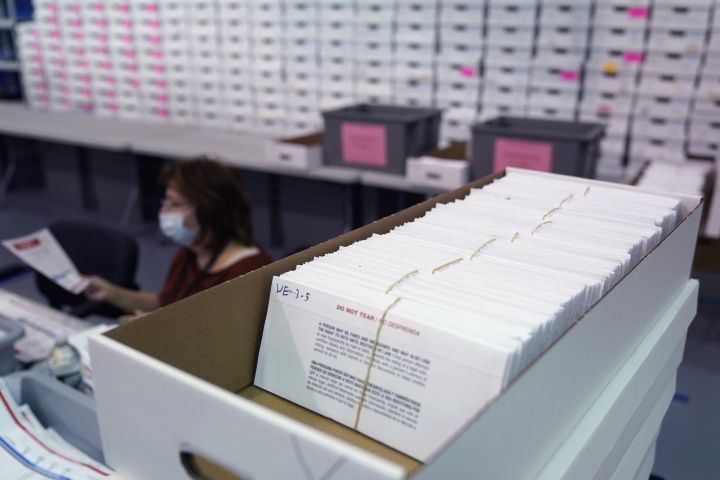The possession of small amounts of hard drugs will be decriminalized in Oregon after people in that state voted in favour of the initiative on Tuesday.

With the vote, Oregon will become the first state in the U.S. to adopt such a policy.
When the state implements the provisions included in Measure 110, people caught with small amounts of heroin, cocaine, LSD and other drugs will have the option of paying US$100 fines or attending a free addiction recovery centre instead of facing arrest and the possibility of time in prison.
Measure 110 proposed funding the recovery centres through tax revenue generated by the state’s legal cannabis industry.
The proposal to decriminalize the possession of such drugs was endorsed by several organizations that represent health professionals in the state.
“Punishing people for drug use and addiction is costly and hasn’t worked. More drug treatment, not punishment, is a better approach,” reads a statement previously issued by the Oregon Nurses Association, the Oregon chapter of the American College of Physicians and the Oregon Academy of Family Physicians.
While some district attorneys also backed the initiative, at least two dozen of their counterparts voiced opposition to it.

Get breaking National news
Oregonians also voted to move ahead with legalizing the therapeutic use of psychedelic mushrooms.
Oregonians voted in 2014 to legalize the recreational use and sale of cannabis.
Before Election Day, 11 U.S. states had fully legalized marijuana’s use for adults and on Tuesday, people in New Jersey and Arizona voted in favour of seeing those states become the latest in the U.S. states to legalize the recreational use of cannabis.
In both New Jersey and Arizona, recreational cannabis use will become legal for people 21 and older. New Jersey will need to pass legislation to set up the cannabis marketplace in that state.
READ MORE: The U.S. election could change the cannabis industry. Is Canada ready?
Steve Hawkins, executive director of the Marijuana Policy Project, said the result in New Jersey “will undoubtedly have a rippling effect in the Northeast and add to the increasing pressure in neighbouring states to take action on marijuana legalization.”
The measure passed in Arizona also allows for people convicted of certain crimes related to cannabis to seek to have their records expunged.
Montana and South Dakota also voted on legalizing recreational cannabis. South Dakota, along with Mississippi, also saw people cast ballots on measures regarding the medical use of cannabis.
The legalization of cannabis use has gained momentum since 2012, when citizens of Colorado and Washington state voted in favour of the idea.
–With files from The Associated Press’ David A. Lieb and Andrew Selsky
Watch below: (From Oct. 17, 2020) As Canada’s legal cannabis industry turns two on Oct. 17, 2020, licensed stores across the country are celebrating a jump in sales. Jasmine Pazzano explains.









Comments
Want to discuss? Please read our Commenting Policy first.